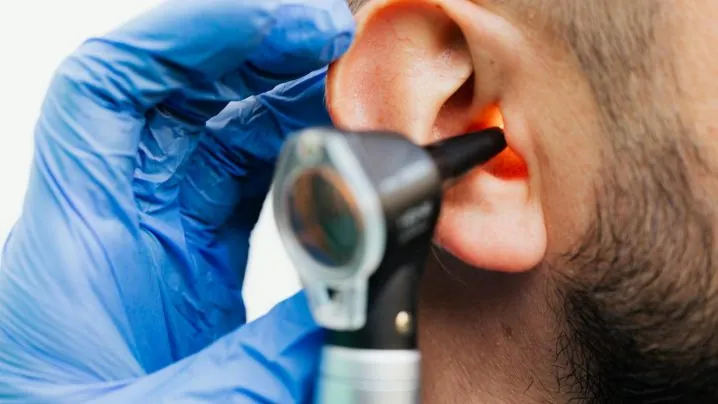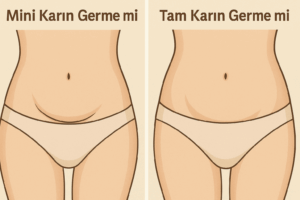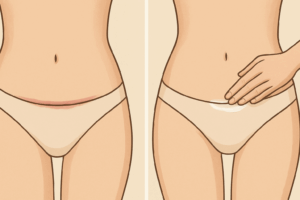Tinnitus, known as "tinnitus" in medical language, is the perception of sound in the ear or head even though there is no sound source in the external environment. This sound can be buzzing, whistling, whistling, ringing or throbbing. Tinnitus is a common problem that affects many people and can seriously affect quality of life. In this article, we will discuss in detail the causes, symptoms and solutions recommended by ENT (Ear, Nose and Throat) specialists.
What is Tinnitus?
Tinnitus is the perception of sound in one's ear or head, even though there is no sound source in the external environment. This perception of sound is heard only by the patient and is usually continuous. Tinnitus can vary from person to person:
- Humming
- Buzz
- Whistling
- Bell sound
- Cricket sound
- Throbbing
- Pulse beating sound
Tinnitus may not be a disease in itself, but a symptom of another underlying health problem. Therefore, it is important for people with tinnitus to consult an ENT specialist.
Causes of Tinnitus
Tinnitus can have many causes. The most common causes are:
- Hearing Loss Hearing loss due to age or noise exposure can cause tinnitus.
- Ear Congestion: Earwax buildup or fluid in the middle ear can cause tinnitus.
- Meniere's Disease: Fluid imbalance in the inner ear can cause tinnitus, dizziness and hearing loss.
- Head and Neck Injuries: Head injuries or neck injuries can cause tinnitus by affecting the inner ear or auditory nerves.
- Blood vessel disorders: High blood pressure or vascular blockages can cause tinnitus.
- Medicines Some medicines such as aspirin, antibiotics and some cancer drugs can cause tinnitus.
- Stress and Anxiety: Psychological factors can trigger tinnitus or exacerbate existing tinnitus.
- Temporomandibular Joint (TMJ) Disorders: Jaw joint problems can cause tinnitus.
- Otosclerosis This condition, caused by hardening of the ossicles in the middle ear, can lead to tinnitus.
- Acoustic Neuroma Benign tumors of the auditory nerve can cause tinnitus.
Symptoms of Tinnitus
The main symptom of tinnitus is the perception of sound in the ear or head without an external sound source. However, other symptoms may also occur in combination with tinnitus:
- Hearing difficulty
- Dizziness
- Balance problems
- Feeling of fullness in the ear
- Headache
- Sleep disorders
- Difficulty concentrating
- Anxiety and depression
Solution Suggestions from ENT Specialist
Tinnitus treatment varies depending on the underlying cause. ENT specialists may recommend various treatment methods depending on the patient's condition:
- Treating the Underlying Cause: For example, if there is ear congestion, ear cleaning may be performed, or blood pressure medication may be recommended if blood pressure is high.
- Hearing Aids: For tinnitus due to hearing loss, the use of a hearing aid may be helpful.
- Sound Therapy: Special devices or applications can be used to mask the ringing sound.
- Medication Therapy: In some cases antidepressants or anxiolytics may be recommended.
- Cognitive Behavioral Therapy (CBT): It is a therapy that teaches strategies to cope with tinnitus.
- Tinnitus Retraining Therapy (TRT): It is a treatment that teaches you not to notice the tinnitus.
- Lifestyle Changes: Stress reduction, healthy eating and regular exercise are recommended.
- Akupunktur: Bazı hastalarda akupunktur tedavisi faydalı olabilir.
- Transcranial Magnetic Stimulation (TMS): It is a method that aims to reduce tinnitus by stimulating certain areas of the brain.
- Surgical Intervention: Rarely, for example in the case of an acoustic neuroma, surgical intervention may be necessary.
Ways to Prevent Tinnitus
It may not be possible to completely prevent tinnitus, but some measures can be taken to reduce the risks:
- Noise Protection: Avoid exposure to loud noise. Use earplugs or headphones when necessary.
- Check the Volume: Keep the volume at a reasonable level when listening to music with headphones.
- Regular Exercise: Regular exercise improves blood circulation and maintains overall health.
- Healthy Nutrition: A balanced and healthy diet protects your overall health and ear health.
- Stress Management: Try techniques such as meditation and yoga to keep your stress levels under control.
- Regular Checkups: Go for regular ENT check-ups, especially if you are at risk.
- Blood Pressure Control: High blood pressure can cause tinnitus, so have your blood pressure checked regularly.
Conclusion
Tinnitus is a common problem that can seriously affect quality of life. However, with the right diagnosis and appropriate treatment, it is possible to overcome this problem. If you are experiencing constant tinnitus, you should consult an ENT specialist. A specialized physician will determine the most appropriate treatment method for you and help you improve your quality of life.
Remember, ear health is an important part of your overall health. Take care of your ears, avoid loud noises and seek medical attention without delay if you notice any abnormalities. Healthy ears are the key to a better quality of life.

























